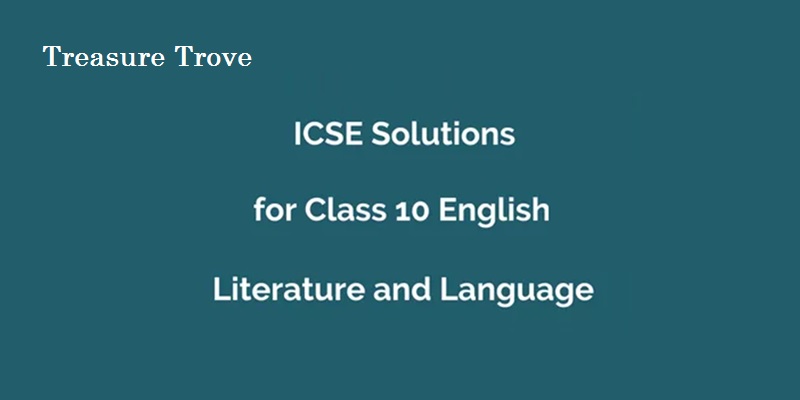
After Blenheim by Robert Southey is an anti-war poem (opposed to war) that offers deep insights on war and its consequences. Written in the form of a ballad, the poem is centered around one of the major battles of eighteenth century – the Battle of Blenheim in which the allied forces (coalition of forces including the English), defeated the Franco-Bavarian army on the land of Blenheim, a small village in Southern Germany.
Blenheim is the English name of Blindheim, a village in Bavaria, Germany, which was the site of the Battle of Blenheim (in 1704), fought between the Allied forces (inlcuding the English) and the Franco-Bavarian army.
GET INSTANT HELP FROM EXPERTS!
- Looking for any kind of help on your academic work (essay, assignment, project)?
- Want us to review, proofread or tidy up your work?
- Want a helping hand so that you can focus on the more important tasks?
Hire us as project guide/assistant. Contact us for more information
The poem reveals the scene of a former battlefield through the converstion between Kaspar, an old farmer, and his grandchildren, Wilhelmine and Peterkin. One of the kids finds something ‘large and round’, which his grandfather says is a skull (and says there are many nearby). Several such instances are revealed through the poem to depict the tragic consequences of war & the vulnerability of human life.
The poem makes us ponder why wars happen, as in most cases the losses far outweigh the gains.
Full Poem
It was a summer evening, Old Kaspar’s work was done, And he before his cottage door Was sitting in the sun, And by him sported on the green His little grandchild Wilhelmine.
She saw her brother Peterkin Roll something large and round, Which he beside the rivulet In playing there had found; He came to ask what he had found, That was so large, and smooth, and round.
That was so large, and smooth, and round. Old Kaspar took it from the boy, Who stood expectant by; And then the old man shook his head, And, with a natural sigh — “Tis some poor fellow’s skull,” said he, “Who fell in the great victory.
“I find them in the garden, For there’s many here about; And often when I go to plough, The ploughshare turns them out. For many thousand men,” said he, “Were slain in that great victory.”
“Now tell us what ’twas all about,” Young Peterkin, he cries; And little Wilhelmine looks up With wonder-waiting eyes; “Now tell us all about the war, And what they fought each other for.”
“It was the English,” Kaspar cried, “Who put the French to rout; But what they fought each other for, I could not well make out; But everybody said,” quoth he, “That ’twas a famous victory.”
“My father lived at Blenheim then, Yon little stream hard by; They burnt his dwelling to the ground, And he was forced to fly; So with his wife and child he fled, Nor had he where to rest his head.”
“With fire and sword the country round Was wasted far and wide, And many a childing mother then, And new-born baby died; But things like that, you know, must be At every famous victory.
Word-meaning:
- Blenheim – Blenheim is a village situated near Bavaria in Germany.
- Sported – played
- rivulet – small stream
- Expectant – expecting or hoping for something to happen
- rout – defeat
- ploughshare – blade of a plough
- slain – killed
- wonder-wailing – expecting to see and hear exciting things
- quote – said
- yon – beyond
- hard by – very near
- dwelling – house or building
- fly – run away
- wasted far and wide – great destruction and devastation
- Childing mothers – pregnant woman
- the field was won – the battle was won
- Duke of Marlborough – English General Commander of British Forces in the war of Spanish Succession (1701-1714)
- Prince Engene: Austrian General, born in France. With Duke of Marlborough, he defeated the French at Blenheim
- Nay – No
Notes and Question and Answers
GET INSTANT HELP FROM EXPERTS!
- Looking for any kind of help on your academic work (essay, assignment, project)?
- Want us to review, proofread or tidy up your work?
- Want a helping hand so that you can focus on the more important tasks?
Hire us as project guide/assistant. Contact us for more information
Question: What is the moral of the poem ‘After Blenheim’?
The moral of the poem is to avoid wars at any cost because it only causes people to suffer and brings about death and destruction.
The poet says that while some may boast about their victory, the fact is that there is nothing great about victory in a war as both the sides are made to suffer. People are forced to flee, many die in the most undignified ways, mothers and babies are killed.
Through the poem, the poet brings out the horrors and futility of wars and teaches us to avoid wars at all costs.
Question. “War settles nothing. To win a war is as disastrous as to lose one.” – Agatha Christie. Illustrate the truth of the above statement with close reference to the poem After Blenheim and the short story Old Man at the Bridge.
Question. After Blenheim is an anti-war poem. Discuss how the poem highlights the destruction caused by war and the common man’s ignorance of its purpose .
StudyMumbai.com is an educational resource for students, parents, and teachers, with special focus on Mumbai. Our staff includes educators with several years of experience. Our mission is to simplify learning and to provide free education. Read more about us.

Leave a Reply
You must be logged in to post a comment.